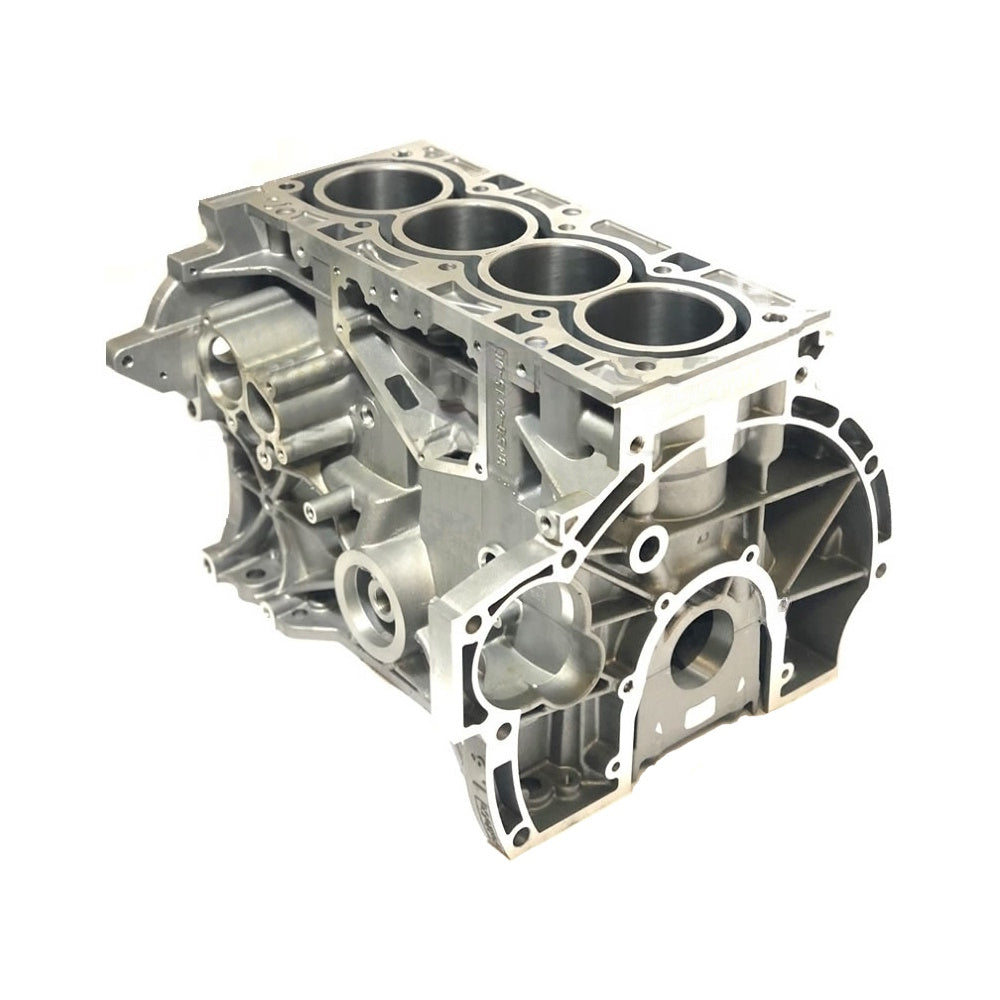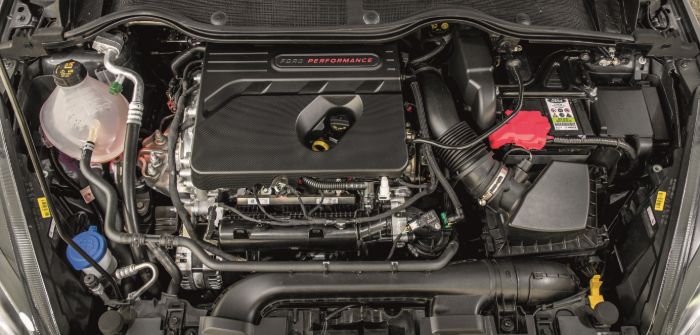How a Well-Maintained Ford Fiesta Engine Improves Vehicle Longevity
How a Well-Maintained Ford Fiesta Engine Improves Vehicle Longevity
Blog Article
The Future of Engines: Developments Driving Lasting Power Solutions
As the vehicle market navigates the critical transition in the direction of sustainability, the future of engines is progressively defined by groundbreaking developments. Electric engine innovations, together with promising growths in hydrogen fuel cells and biofuels, are improving the landscape of power remedies. The emergence of hybrid systems additionally complicates this development, providing both possibilities and challenges to lower exhausts properly. Coupled with the integration of expert system in engine design, these technical strides elevate crucial questions concerning their lasting feasibility and effect on typical paradigms. What might this suggest for the sector and customers alike?
Electric Engine Dope
The advancement of electric engine advancements signifies a pivotal change in the automobile and aerospace industries, driven by the immediate requirement for sustainable alternatives to nonrenewable fuel sources. This transition is defined by significant developments in battery technology, power electronics, and electric motor design, which collectively improve the effectiveness and performance of electric engines.
Current developments have caused the creation of lighter, more energy-dense batteries, such as lithium-silicon and solid-state batteries, which promise longer ranges and much shorter charging times. Furthermore, improvements in electric motor performance, such as making use of permanent magnets and advanced cooling down systems, make it possible for electrical engines to run efficiently under varying problems. These improvements not only boost vehicle performance yet likewise add to a reduction in overall power intake.
Furthermore, the integration of innovative software algorithms has maximized energy management in electrical automobiles, enabling regenerative braking and anticipating billing techniques. As manufacturers progressively embrace electric propulsion, the aerospace and vehicle markets are observing a paradigm change in the direction of greener innovations. This advancement not only meets regulative demands however additionally lines up with customer preferences for eco-friendly transport options, solidifying electrical engines as a keystone of future sustainable mobility.
Advancements in Biofuels
As the automobile and aerospace sectors significantly focus on sustainable power resources, improvements in biofuels become a corresponding solution to electric engines. Biofuels, derived from natural products such as crops, waste, and algae, provide an innovative opportunity for reducing greenhouse gas exhausts and dependence on fossil fuels.
Current research study has actually concentrated on boosting the effectiveness and sustainability of biofuel production. Second-generation biofuels make use of non-food feedstocks, decreasing competition with food supply and minimizing ecological influence. Moreover, improvements in artificial biology have actually allowed the design of microorganisms to produce biofuels better, bring about greater returns and reduced manufacturing expenses.
Furthermore, the development of drop-in biofuels permits smooth combination into existing infrastructure, allowing a smoother change for sectors generally dependent on fossil gas. ford fiesta engine. These gas can be used in existing engines without adjustments, promoting their adoption throughout numerous sectors
Investments in biofuel innovation, together with supportive plans, are important to drive technology and scalability. As the worldwide area looks for to combat climate modification, biofuels use a practical, instant service that straightens with the overarching goal of sustainability in transportation and aviation.
Hydrogen Fuel Cell Technology
A growing number of scientists and companies are exploring hydrogen fuel cell modern technology as a feasible choice to standard source of power in transport and energy systems. This modern technology converts chemical energy from hydrogen into electrical power via an electrochemical response, with water as the only result, making it an environmentally pleasant option.
The core of hydrogen gas cells is the fuel cell stack, where hydrogen particles are split right into protons and electrons. The circulation of electrons generates electrical power, while protons move through a membrane layer to incorporate with oxygen from the air, creating water. This procedure leads to high efficiency and reduced exhausts, placing hydrogen fuel cells as a crucial gamer in the shift to lasting energy.
Considerable developments have been made in boosting the longevity and efficiency of gas cells, along with decreasing prices through cutting-edge manufacturing strategies. The growth of hydrogen production approaches, such as electrolysis powered by sustainable energy sources, improves you could try these out the sustainability of the overall system. As facilities for hydrogen refueling expands and manufacturing techniques come to be more reliable, hydrogen gas cell innovation holds wonderful promise for decarbonizing various industries, consisting of durable transport and fixed power generation.
Hybrid Equipments and Their Effect
Hybrid systems represent a substantial evolution in lasting engine modern technology, combining standard inner burning engines with electric propulsion to optimize energy performance and reduce emissions (ford fiesta engine). This dual strategy enables lorries to use both power resources, allowing greater adaptability in power usage and minimizing reliance on fossil fuels

In enhancement to ecological advantages, hybrid systems use customers a practical transition in the direction of totally electric automobiles. They ease variety anxiety by incorporating the comfort of gasoline with the advantages of electrical propulsion, making them an appealing option for a wider audience. As producers purchase hybrid modern technology, the advancement of more innovative battery systems and light-weight products proceeds to improve performance. In general, crossbreed systems stand for an essential action in the direction of achieving visit this site right here lasting transport and addressing the immediate demand for environmentally friendly power options.
The Function of AI in Engine Layout
Leveraging advanced algorithms and machine understanding techniques, the vehicle sector is increasingly incorporating expert system (AI) into engine layout processes. AI improves the performance and performance of design by assessing substantial datasets to identify ideal setups and efficiency criteria. This ability permits designers to simulate various operating conditions and anticipate engine behavior under several situations, substantially reducing the moment and cost related to traditional prototyping techniques.
In addition, AI facilitates the development of sophisticated materials and combustion processes tailored for sustainability. By optimizing fuel effectiveness and lessening exhausts, AI-driven layouts straighten with international campaigns targeted at decreasing the carbon footprint of automobile engines. Maker discovering formulas can likewise predict maintenance demands, causing boosted dependability and longevity of engine components.
Moreover, AI is instrumental in the integration of electrification modern technologies, such as crossbreed systems, where it can optimize battery administration and energy recuperation procedures. As the market moves in the direction of even more sustainable power options, the role of AI in engine design ends up being progressively important, driving innovation and boosting the efficiency of future engines. Ultimately, the cooperation between AI and engine design proclaims a brand-new age of smarter, cleaner, and extra reliable vehicle innovations.

Verdict
In verdict, the future of engines is being formed by a merging of cutting-edge innovations that focus on sustainability. Electric engine developments, biofuel developments, hydrogen gas cells, and hybrid systems jointly contribute to a significant decrease in exhausts and environmental effect.
Electric engine improvements, along with promising advancements in hydrogen gas cells and biofuels, are reshaping the landscape of power options. In addition, enhancements in electrical motor performance, such as the usage of irreversible magnets and progressed cooling systems, allow electrical engines to run properly under differing problems. By optimizing fuel performance and minimizing discharges, AI-driven styles line up with worldwide efforts intended at reducing the carbon impact of automotive engines. As the industry moves towards more sustainable power remedies, the function of AI in engine style ends up being progressively important, driving advancement and read more improving the efficiency of future engines. Electric engine innovations, biofuel advancements, hydrogen gas cells, and hybrid systems jointly add to a considerable reduction in emissions and ecological effect.
Report this page